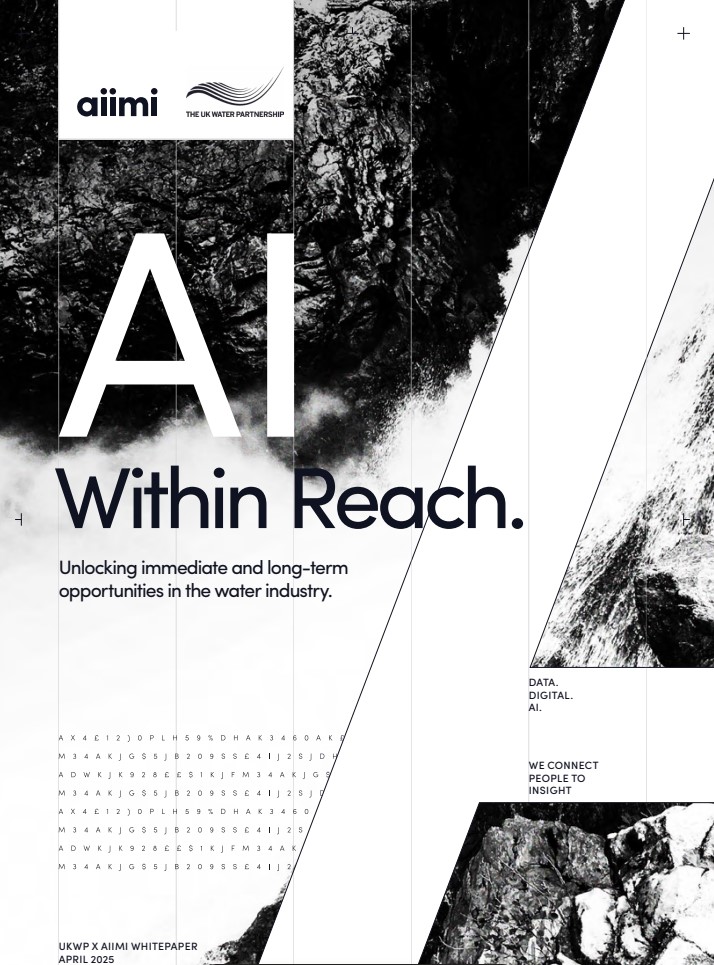
AI White Paper
Our industry is continuously adapting to the increasingly acute pressures of climate change, efficiency, and cost drivers. Customers’ expectations of our services and their experiences have never been higher; we need to meet these challenges with reliability, resilience, and excellent value for money for consumers.
Regulation (e.g., Environmental Information Regulations) and industry initiatives (e.g., Stream Open Data, Spring Innovation Challenge etc.) have gone some way to improving transparency in the industry. While there is more to do, it’s only right that performance shortfalls are highlighted, so that we know where to focus innovation, funding, and our finite
knowledge resources, aligning to – and learning from – the UK Government’s Industrial Strategy.
Infrastructure investment in the water sector is now the highest it has ever been, and with costs continually rising, technology can accelerate capital delivery, as well as downstream operations. Water bills are increasing in 2025, so in the context of customer affordability, how do we demonstrate value for money with those increased costs?
Automation, connectivity, and digital technologies are transforming the way our industry works: we deliver better services with fewer people; asset management is enhanced through data insights; and our people, customers, and infrastructure are more connected to one another than ever before.
Artificial Intelligence is changing so many aspects of our lives: ever-present on our devices and communications channels,
even tracking – and influencing – our behaviours and habits. The question is: What’s holding us back from unleashing the full power of AI within the water sector? What should we be worried about and how can we address those concerns? How can we use this technology to improve transparency and trust with our customers and key stakeholders?
Never has there been more focus on the water industry’s responsibility to protect the environment. This extends to the
use of AI, where we must consider the ‘circular economy’ associated with water and energy resource demands through
the use of emerging AI technologies.
This discussion paper aims to explore how generative AI can help us respond to our greatest challenges now and create a legacy of knowledge and expertise that’s accessible, valuable, and helpful for future generations.
